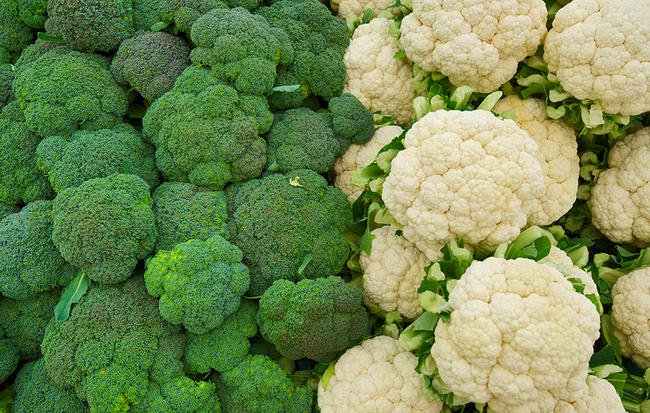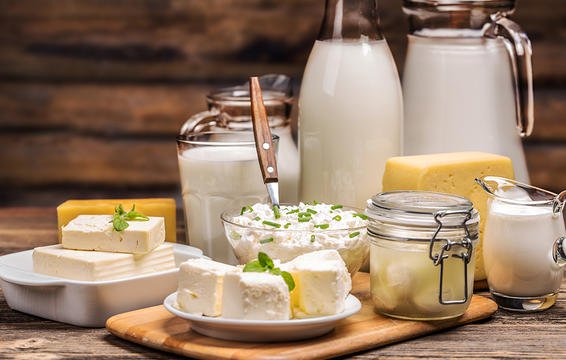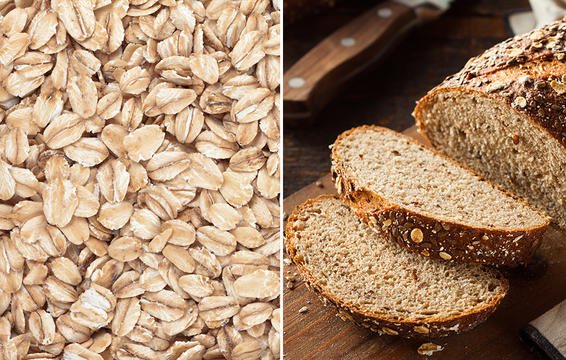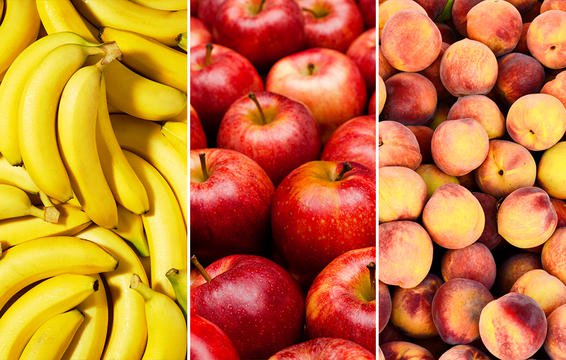
BROCCOLI AND CAULIFLOWER
Cruciferous vegetables — like broccoli, cauliflower, cabbage, and Brussels sprouts — are particularly high in fiber, a type of carb your body can’t digest.
“Unlike most other components of food, fiber reaches the large intestine intact,” explains Myers. “The majority of the bacteria in the GI tract live in the large intestine. Bacteria have the capacity to utilize fiber for energy, but the byproduct of their metabolism is gas.”
Love cauliflower anyway? Try these delicious cauliflower rice recipes:
OATS AND WHOLE WHEAT BREAD
Whole grains make you gassy for the same reason the vegetables listed above do: they’re equally high in fiber.
You don’t want to skimp on fiber, though, since it’s great for your heart, digestion, and weight. Instead, increase your intake slowly by eating an additional serving of a high-fiber food per day until your stomach gets more comfortable with it.
Drinking enough water during this process will help ease the gas, so for every 5 grams of fiber you add, increase your fluids by 8 ounces, says Myers.
MILK, CHEESE, AND YOGURT
Dairy contains a type of sugar called lactose, but many people have trouble digesting it because they have insufficient amounts of an enzyme called lactase, explains Myers, which can lead to bloating, gas, or even constipation.
In fact, about 65 percent of people have trouble digesting dairy as they grow older, according to the U.S. National Library of Medicine.
That doesn’t necessarily mean you’re completely lactose intolerant or allergic, though. Some people are merely sensitive to it, so you can try drinking reduced-lactose milk or taking lactase supplements (like this one) to see if that eases your stomach problems, says Myers.
If you experience severe abdominal pain, though, you should check in with your doc, ideally a gastroenterologist, so you can rule out the possibility of other serious health issues, says Dr. Poppers.

APPLES, BANANAS, AND PEACHES
Your body loves fruit — most of the time. If your stomach feels a bit rumbly after your daily apple, it could come down to the fiber, says Myers.
Fruit is also high in natural sugar, like fructose. “Although it’s less common than lactose intolerance, some people experience gas and bloating from fruit because their GI system doesn’t break down all the sugars in fruit properly,” he explains. “So these carbohydrates reach the large intestine and serve as food for bacteria, which produce gas as a byproduct.”
The biggest offenders include apples, peaches, raisins, bananas, apricots, prune juice, and pears, according to the International Foundation for Functional Gastrointestinal Disorders.
BEANS
Beans get their bad reputation for a reason. Most legumes — including lentils, nuts, and peas — are high in fiber, along with sugars your body can’t digest properly, like raffinose and stachyose, according to a study published in the Nutritional Journal.
Bacteria in your intestines break down these sugars, resulting in all sorts of gas, like hydrogen, methane, and even sulfur (responsible for that rotten egg smell).
Rinsing and draining canned beans can help reduce some of these gas-causing properties, says Myers.
SODA AND SELTZER WATER
Carbonated drinks can make you gassy because they cause you to swallow extra air, which gets trapped in your GI tract, says Myers. That air eventually has to be released, and the only way out is in the form of gas.
If you must have a fizzy beverage, go with a sugar-free seltzer. Many sodas contain an artificial sweetener known as sorbitol, which is not fully absorbed by your body and fermented by bacteria instead, causing even more farts.
WHAT SHOULD YOU DO IF GAS IS A CONSTANT ISSUE?
If gas is becoming a consistent problem, taking a tablet like beano with your meals may help, since it contains an enzyme that makes fart-inducing foods easier to digest, says Dr. Poppers.
You may also want to try keeping a food log for a few weeks, he suggests. Write down what you eat, how much of it, and how it makes you feel. This can help you pinpoint the worst offenders. Once you have that down, a doc or an R.D. can help you figure out the best way to approach your diet if you want to minimize gas.
Take note of any other bothersome symptoms, like constipation, stomach pain, or heartburn, or nausea, says Dr. Poppers. This way, your doctor can rule out other serious GI issues, like irritable bowel syndrome.




